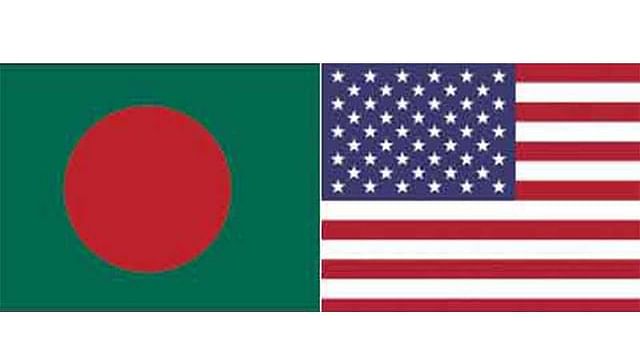Bangladesh will now have to sign a deal if it wants to continue receiving grants for its security forces under US foreign assistance. The government this month will inform the United States of its final decision regarding signing the deal. The US has also enquired about the areas where the previous assistance has been spent. Officials of the home ministry and foreign ministry informed Prothom Alo of the matter on Thursday.
The US basically extends grants at various levels to many foreign security forces for the protection of human rights. Bangladesh had been receiving such assistance under the US foreign assistance law. The security forces are provided with training and equipment under this arrangement.
Bangladesh is taking the matter of receiving or not receiving this assistance seriously, in the backdrop of the US slapping sanctions on RAB and seven of its former and incumbent officers on 10 December for human rights violations.
Diplomatic sources have said that before the sanctions, on 1 December the US had issued a letter to Bangladesh stating that if it wanted to continue receiving the aid, it would have to sign a deal under the Leahy Laws. It said that Bangladesh would have to inform them by 15 December whether they would sign the deal or not. They also wanted to know where and how Bangladesh was using the assistance.
An inter-ministerial meeting chaired by foreign secretary Masud Bin Momen was held on 1 December at his office to discuss continuance of the US assistance under the Leahy Laws. Officials of concerned ministries, departments and agencies were present at the meeting. Another meeting will be held next week before informing the US about the decision in this regard.
A senior government official, on condition of anonymity, told Prothom Alo that it had not been possible to complete the preparatory work regarding signing the deal. Bangladesh has requested the US to extend the deadline till 31 December.
Why this deal?
According to the US State Department, the Leahy Laws were enacted to uphold human rights. Two sections of the Leahy Laws are linked to the foreign assistance law. Under the law, assistance is halted to any security agency or force that is involved in extensive violations of human rights including torture, extrajudicial killings, enforced disappearance and rape. Basically, the amendments in the Leahy Laws authorises the US state department and defence department to stop the assistance.
Speaking to this correspondent on Thursday, a diplomat said that the law had been amended recently and clauses had been added necessitating a deal to be signed with the countries where security agencies were receiving assistance. That is why the initiative was taken for countries receiving US grant to sign this deal. Any agency or force facing US sanctions will not receive assistance.
Security assistance is one of the major components of various assistance received under the multidimensional relations with the US.
Md Shahidul Haque, former foreign secretary and fellow of North South University’s South Asian Institute for Policy and Governance
US assistance
According to the US State Department’s website, Bangladesh from 2015 has received Tk 6.50 billion (Tk 650 crore). This includes foreign military funding and training. A considerable amount of the funds has been given to Bangladesh to increase security in the Bay of Bengal.
Also, in 2013 and 2015, the US provided Bangladesh with two Hamilton naval cutters. Bangladesh takes part in UN peacekeeping missions all over the world. The US provided Bangladesh with 50 multi-role armed personal carriers as assistance to the peacekeeping forces. The US spent about Tk 3.80 billion (Tk 380 crore) from 2005 to build the capacity and provide training for Bangladesh’s peacekeeping forces. In 2012 Bangladesh also received fur C-130 transport carrier aircraft worth 180 million (18 crore) dollars from the US. Recently the US spoke of providing Bangladesh with drones worth Tk 1.10 billion (Tk 110 crore).
When asked about the deal to ensure continuance US grants, former foreign secretary and fellow of North South University’s South Asian Institute for Policy and Governance, Md Shahidul Haque, told Prothom Alo Bangladesh had military cooperation with several countries to uphold its security and sovereignty. In the present day context it is natural to make an effort to strengthen this. Security assistance is one of the major components of various assistance received under the multidimensional relations with the US.

